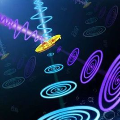Bosonic quantum systems operate in an infinite-dimensional Hilbert space, unlike discrete-variable quantum systems. This distinct mathematical structure leads to fundamental differences in quantum information processing, such as an exponentially greater complexity of state tomography [MMB+24] or a factoring algorithm in constant space [BCCRK24]. Yet, it remains unclear whether this structural difference of bosonic systems may also translate to a practical computational advantage over finite-dimensional quantum computers. Here we take a step towards answering this question by showing that universal bosonic quantum computations can be simulated in exponential time on a classical computer, significantly improving the best previous upper bound requiring exponential memory [CJMM24]. In complexity-theoretic terms, we improve the best upper bound on $\textsf{CVBQP}$ from $\textsf{EXPSPACE}$ to $\textsf{EXP}$. This result is achieved using a simulation strategy based on finite energy cutoffs and approximate coherent state decompositions. While we propose ways to potentially refine this bound, we also present arguments supporting the plausibility of an exponential computational advantage of bosonic quantum computers over their discrete-variable counterparts. Furthermore, we emphasize the role of circuit energy as a resource and discuss why it may act as the fundamental bottleneck in realizing this advantage in practical implementations.
翻译:暂无翻译





